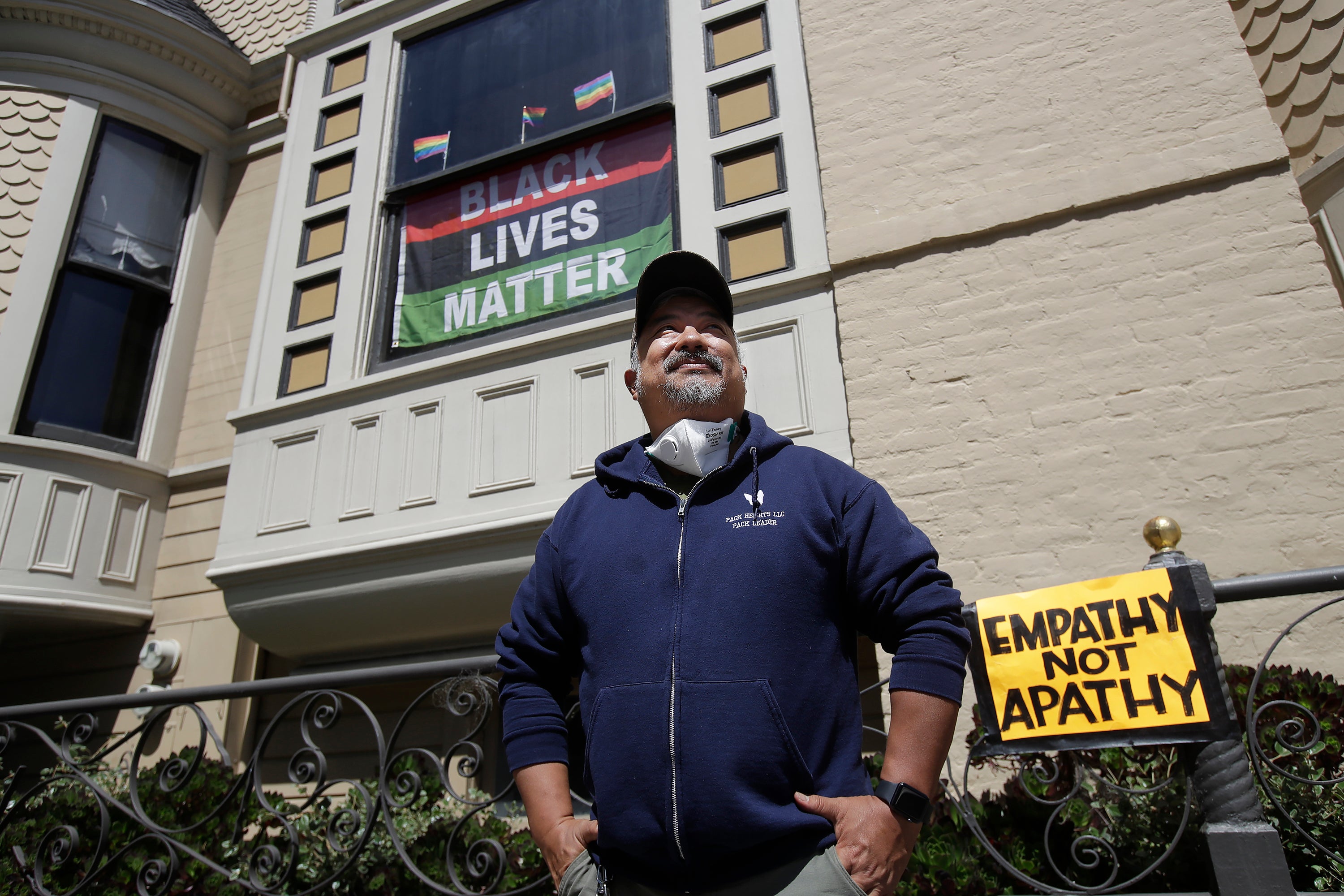San Francisco set to pass legislation about racist 911 calls
San Francisco supervisors are set to approve new legislation to discourage racist 911 calls that they say expose people of color to dangerous run-ins with police

Your support helps us to tell the story
From reproductive rights to climate change to Big Tech, The Independent is on the ground when the story is developing. Whether it's investigating the financials of Elon Musk's pro-Trump PAC or producing our latest documentary, 'The A Word', which shines a light on the American women fighting for reproductive rights, we know how important it is to parse out the facts from the messaging.
At such a critical moment in US history, we need reporters on the ground. Your donation allows us to keep sending journalists to speak to both sides of the story.
The Independent is trusted by Americans across the entire political spectrum. And unlike many other quality news outlets, we choose not to lock Americans out of our reporting and analysis with paywalls. We believe quality journalism should be available to everyone, paid for by those who can afford it.
Your support makes all the difference.Fed up with white people calling 911 about people of color selling water bottles, barbecuing or otherwise going about their lives, San Francisco leaders are set to approve hate crime legislation giving the targets of those calls the ability to sue the caller.
The Board of Supervisors will vote Tuesday on the Caution Against Racial and Exploitative Non-Emergencies Act, also known as the CAREN legislation. It's a nod to a popular meme using the name “Karen” to describe an entitled white woman whose actions stem from her privilege, such as using the police to target people of color.
All 11 supervisors have signed on to the legislation, guaranteeing it will pass, despite some criticism that the name is sexist and divisive. It comes amid a national reckoning on race compelled by the police killings of Black Americans and instances where white people called for officers to investigate people of color.
In May, Amy Cooper, a white woman, called 911 from Manhattan’s Central Park, falsely claiming that a Black man — who had politely asked her to leash her dog — was threatening her. She's been charged with filing a false police report.
In San Francisco, a white couple was criticized on social media after video was widely shared of them questioning a Filipino American stenciling “Black Lives Matter” on a retaining wall in front of his home in June. They later called police.
James Juanillo said he chose yellow chalk to match the color of the house. When the couple approached him, they repeatedly demanded to know if it was his home because he was defacing private property.
“They tried to cast it as a criminal scene,” he said. “It was me calmly applying chalk, not spray paint, not in the middle of the night but very deliberately. The only thing that was missing was a pinot grigio.”
Supervisor Shamann Walton, who introduced the legislation and is Black, said, “911 calls and emergency reports are not customer service lines for racist behavior. ... People of color have the right to do everyday activities and should not be subject to being harassed due to someone’s racial bias.”
Supporters of the legislation say it is crushing to be confronted by police because someone saw you as a threat, possibly as a criminal or as not belonging. It's especially terrifying for Black people, whose encounters with police could end in violence.
“This is not hyperbole," said Brittni Chicuata, chief of staff for San Francisco's Human Rights Commission. “This is an established pattern reflected in the disparate treatment of Black people and other people of color in our city and in our country."
The legislation gives people the right to sue a 911 caller in civil court and supporters hope this will make some think twice before turning to police. The discrimination need not be only racial; it can also be due to the person’s sex, age, religion, disability, gender identity, weight or height.
The legislation does not spell out the standards needed to sue but notes that qualifying calls are those that caused the person to feel harassed or embarrassed; damaged the person’s reputation or business prospects; or forced the person from an area where they had a lawful right to be.
The board has received written complaints from eight people — several whose names have different spellings of Karen — saying they support the legislation but object to its moniker, which they call sexist and ageist.
Vic Vicari wrote that the insensitive use of the name “as a general purpose term of disapproval for middle age white women needs to stop.” Carynn Silva said she loves the name her mom gave her and called it a racist term against white women. Caren Batides asked if the supervisor would want his name mocked.
“Yes, I am named Karen, and I do speak up for injustices on a regular occasion,” wrote Karen Shane. “So could we attempt at coming up with some other acronym that doesn’t vilify a whole group of people named Karen/Caryn/Caren?”
Reached by phone, Shane, who lives in a San Francisco Bay Area suburb and describes herself as a middle-aged white woman, readily pokes fun at her first name and said she’s aware that even complaining about it is something that a “Karen” would do. But she feels the supervisor didn’t need to cheapen what she agrees is important legislation.
“By using the name CAREN, he’s just perpetuating a racial divide," she said. “Granted it’s not a protected class, but it’s somebody’s name.”
Walton has dismissed the concerns, saying the legislation does not refer to any individual.